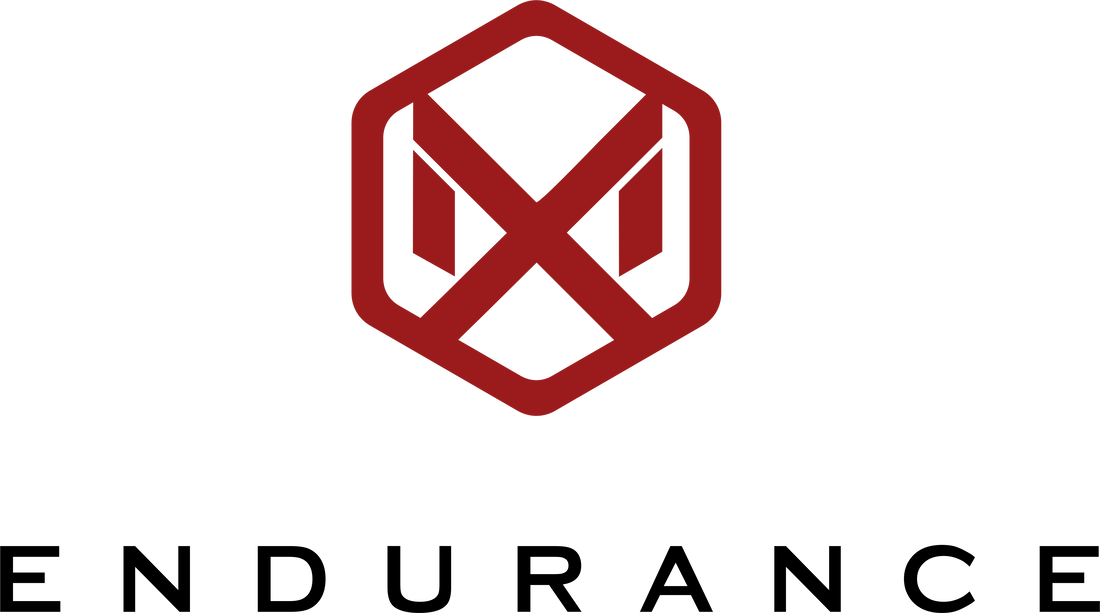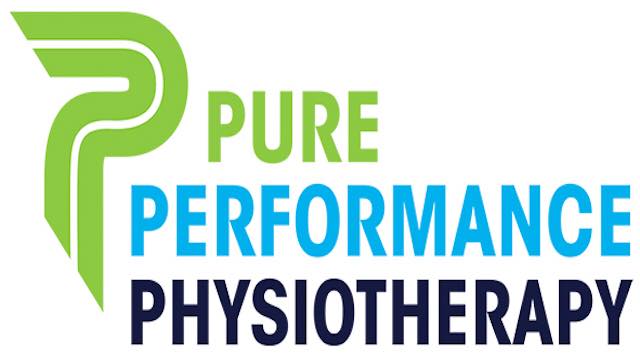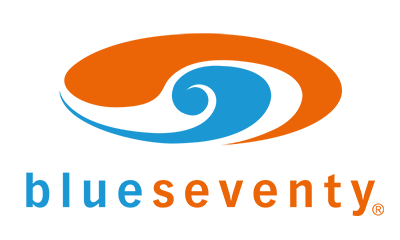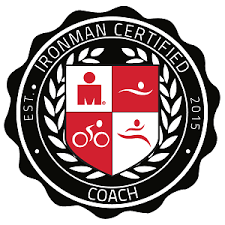|
Hi Everyone!
Yesterday I went for a 3 hour ride. It was a pretty normal ride with some max efforts in the middle. The sort of session I would do multiple times a week. When I was about 30 minutes from home the wheels fell off and I bonked. Now if you are reading this'd you have no idea what I am talking about, lucky you. If you are an athlete who has no idea what I am talking about, take note. Bonking is when your body completely runs out of energy. When you hit the wall. I believe scientifically it is when your body puts itself into a state of sedation. Whatever you want to call it, it is not fun. I was finished with my hard efforts and just doing the 30 minute ride home from the M7 where I ride when I could tell I was a little off. I ran out of water and before I knew it I barely had the energy to spin the pedals. By the time I got home I had a headache and my mouth was completely dry. I was shaking and carrying my bike up the stairs was an effort. When I got home I quickly tried to top up my nutrition. Drank a lot and had a True Amino protein shake. After a while I started to feel better but I know from past experience that digging that deep can have a lingering impact. Imagine your body is a bank account. You save up a certain amount of energy which you can burn. You can borrow from the bank as well sometimes. What is important though is that you don't want to run out of money. Even worse is when you run out of money and borrow too much. By recovering properly you are able to top up your savings and by progressively overloading your body your savings will go up. But if you 'break the bank' by borrowing too much or having your account in the red, like in life, expect their to be consequences. Now those of you who know me will also know that I am a MASSIVE Superman fan. In fact I am just a huge comic book fan full stop. Last night after my incident on the bike I went to the midnight screening of Batman V Superman. This isn't really related to the story but what was significant was that I didn't get home and to bed until 3:30am. With an alarm set for 7am it means that I have had only 3 and a half hours sleep. You wake up and you feel ok. Because I am that big a fan, I had tickets to see the movie again at 12. On my schedule today is a 1 hour run set of hill repeats and a 2 hour big gear ride. I decided to get my run out of the way this morning. It was a struggle. The funny part is the actual hills which were intervals of 45 seconds, were ok. But as soon as they were over I felt ill. Even the recovery jogging felt hard. While I am confident that doing the set was the right thing I am also aware that I do not want to break the bank. I wrote an article for True Amino last week about the importance of recovery to your training. I also wrote last week here about being willing to suffer when you train and race. But what I have neglected to write about is to know when it is time to listen to your body and back off a bit. Now to make you all understand my history of bonking I thought I would recount those times where it has happened to me. Lucky for me I can count them on one hand (not for too long though). The first time it happened was one of the first longer rides I had ever done. Where we were living meant that the last 20km of the ride was uphill. I got into town knowing this and I knew something was wrong. It was the first time I bonked. It took me a full day to recover. The second time it happened to me was in a bike race. There were 2 options, a 254 and 207km option. I was going on a cruise ship that evening so asked if I could do the shorter race but start with the longer athletes. I jumped onto a pack and rode the first 80km with the group. I then took a turn around and they kept going. This meant that I rode for the next 50kms completely by myself. Being a young idiot I tried to ride too hard and at the 130km mark I realised I was very thirsty. I had not had a drink for over an hour. I stopped at an aid station and grabbed some sport drink. I emptied the bottle, grabbed a spare and rode for about 500m before pulling over and projectile vomiting. It is a long story but I eventually made it to the finish line for my longest ever ride (turned out to be 212km) mostly thanks to my wife who went and got coke and would drive ahead and wait for me to pass. That incident took me 2 days to recover from (lucky I was on a cruise ship). The worst experience I ever had was at Western Sydney 70.3 in 2014. Read my race report here. That experience took me a week to recover from. Then there was yesterday. Now I am a much smarter athlete than I used to be and while I think in the scheme of things my bonk yesterday was relatively minor, it is still cause for concern. No I do not mean I am going to wrap myself in cotton and be precious. Instead it means that I am going to be a little careful. For today's ride (yes I am going to do it) I will go to the local park where there is a 3.2km loop. I will ride there today. That way, if something does go wrong, I am no further than 2km from home. I am also lucky that tomorrow is a scheduled rest day so I know that I will be able to boot my recovery tomorrow. Basically, bonking isn't the end of the world. It is something that happens to many athletes, probably the majority. The thing I find funny about talking to other athletes about bonking is that while we all agree it is terrible, we also agree that is a valuable lesson. Some of just take a few more times before we learn that lesson... So what are you able to gain from a horrid experience like bonking? For me, bonking can be an incredibly mental experience. Yesterday when I knew what was happening I could have stopped. Called a taxi or my wife. But instead I used it as an opportunity to have a discussion with myself. In fact it was very much like a race. While I may not bonk in every race, there is definitely a point during the race where I am not feeling like my normal amazing self. So by working out how to deal with the negative thoughts that you rarely get in training you are able to apply those lessons on race day. The other big benefit to actually bonking is the ability to work out what went wrong. Now for me, I am doing a little experiment with my diet at the moment (I will write all about it once I am finished) and I had heard that when you start training can be hard. That is why I am completely ok with it happening yesterday. In fact the only thing that was different yesterday to every other day I ride is the new diet. If this had happened to me on a regular day or a day I was trying a new drink or something I would have a good understanding that a certain practice does not work for me. Then you are able to take those lessons and again, incorporate them into your race day strategy. If this keeps happening to me over the next few weeks I am not going to force the fact for an 'experiment' I will stop doing it and go back to what I know works. In reality we do need to train hard and sometimes this mean we push ourselves too far. It really will happen to most athletes. Even if you just go to the gym a couple of times a week, you have a big day at work and don't eat then try and do a spin class... It might not end so well. What is important though is to not make a habit of it. Learn from the experience like I have suggested. The better you recover the better you will be able to train. It isn't rocket science. Spending too much time with your account in the red will lead to sickness and injury and ultimately mean you train less. So pay attention to what you are doing, how much of it you are doing and what your body is trying to tell you. So I am just going to finish typing this and jump on my bike. I had a lot of fun racing the Sydney Corporate Triathlon on the weekend for Nestle Professional. It was a very short and hectic race but it was probably the best location for a race I have ever seen. Right on Sydney Harbour with incredible views of the Opera House and Harbour Bridge. Other than that I am looking forward to spending some time with friends and family over the Easter break. So happy Easter everyone! Eat a little bit of chocolate and remember to TRI!
1 Comment
Hi Everyone!
Self-preservation is one of those survival instincts which has seen us evolve into the primary form of life on this planet. It is in our best interests to ensure that we are not harmed or in pain. But when that need to protect ourselves becomes a limiting factor in training, people plateau or stop seeing the results that they are hoping for. I see it all the time. People I know whether they are triathletes or just people trying to stay fit who train a good amount of hours a week but are either unable to lose weight or are not able to race faster. I am sure that there are a whole number of possible reasons for some of these people being unable to meet their own goals. But today I want to talk about how people tend to avoid working on those things which they perceive to be their weakness and the fact that many people are unwilling to suffer. Both of these traits are things that I have been and sometimes am guilty of. I am writing about them this week because I am trying to overcome some of them myself. I am thinking of this post a bit like I am kicking myself in the backside to get on with it. Weaknesses When we perceive something as a weakness it is often something we are not good at. In triathlon it could be one of the three disciplines. For me, I always thought that swimming was my weakness. I know I can ride a bike well and have always had an overinflated sense of speed when running. Swimming however was something I was no good at. Not only that, when I swam I felt useless. I could literally feel that I was barely moving in the water. So I convinced myself that the swim was something that I just had to survive. Once I got out of the water I would be able to bike and run and I could do those with my eyes closed. So how did I go about training? I would ride my bike and run nearly every day. I would jump in the pool maybe once a month. Unlike people from around the world, I grew up in Australia. This means that I have known how to swim since I was about 4 years old. Swimming is part of our life. While there is a perception that all Australians are great swimmers the truth is we are all capable. Not all fast. But I had been an ok swimmer in my younger years. I never really trained or anything. I was even crowned the Age Champion at my primary school swimming carnival. What this meant was I never really thought I needed to put any serious work into my swim. My first triathlon required me to swim 1.5km. In the lead up to the event I think the furthest I swam was about 1000 metres. I can swim, she'll be right... I hope. Well I had to swim the majority of the race breastroke. It didn't end there either. 2 years later I was still swimming the majority of the 1.5km breastroke. Why? Because it was easy. It didn't hurt and I was unwilling to work on my weakness. It is funny to contrast swimming to say bike riding for me. When I am on a bike and I feel that lactate in my legs there is part of me that absolutely loves it. When it really starts to hurt I start smiling sometimes and it makes me dig even deeper. Weird right? I assure you I am not some kinky bloke who likes to be beaten while chained up to the wall. There is no need for a safe word in my house! But on the bike I am more than happy to suffer. In the pool I was not. When I reflect on my introduction to the sport, apart from wishing I managed to lose a heap of weight before it, I regret not working more on my swim. My swim has become arguably my strongest leg now (when I can swim in a straight line). While I still do not love swimming and have to force myself into the pool somedays, I have acknowledged how important it is for me to work on my weaknesses. As I said, it is probably my strongest leg now. Well not right now. I swam a 1km time trial last night and felt like I was drowning but that hardly suits the story I am trying to tell. Now when I see myself as a triathlete I realise that it is no longer the swim that requires the most work. Instead it is the run. I am writing this and I am hoping that in 12 months time I will be writing another post about working on my weakness and I may even be saying that the bike is my weakness. What is important though is I am now objectively able to identify that I have weaknesses and instead of avoiding them, I tackle them head on. It isn't easy to work on your weaknesses either. For me to lift my swimming I swim at least 3 times a week. I have had a serious shoulder injury which saw me out of the pool for nearly 2 months. I have copped jellyfish and bee stings while swimming (YES a bloody bee stung me in the pool!) and my hair seems to permanently be the same consistency as dry grass. Not only that, but I have accepted the suffering that is required to improve. I know that if I want to get better at something it isn't going to be easy. Suffering Nice little segway I did there right! But it is true, suffering is important if you want to improve at anything. As always I want to emphasise that I am not talking about pushing yourself beyond your limit or to the point of injury. I am also completely opposed to people who go out and bury themselves every session. That leads to only one place, injury. Instead what I am talking about is pushing yourself a little beyond what you are capable of. The perfect way to think about this is running. Running is hard on the body. It hurts. If you don't have perfect technique it can lead to serious injury. But if you want to get faster you need to push yourself sometimes. While the majority of running should be slow, low heart rate running with a strong focus on technique, some of it needs to be fast. When I do a park run, which if you are unfamiliar, is a free 5 km event held all around the world on Saturday mornings, I give it everything. I finish that 5km run and simultaneously feel like collapsing and vomiting. I have the luxury of being at the front of the pack at my local park run (it isn't a very big one which is why I am at the front) but the majority of runners who finish around the same time as me are also looking particularly horrid after finishing. When some of my friends ask "how I run so fast" I say to them that I am willing to suffer. Triathlon is maybe a sport made for people like me who are a little bit twisted in the head. But one of the best lines I ever heard, I think I got told on a MaccaX camp was that, if you can sprint the finish chute, you didn't race hard enough. Again, this is completely different if you are racing someone and the adrenalin gets you there. But how often do you see people at the finish line hit that chute and sprint? A guy I know who, like me, races 70.3 runs slow. He is not overweight, he is not unfit. He has raced multiple triathlons of all distances. Yet when I see his average pace which is around 8min/km it doesn't make sense to me. I asked him one day how it was possible for him to run so slowly. To give you perspective, my SLOW runs and I mean SLOW are about 6min/km and I am not a great runner. He told me that pace was comfortable. It literally did not compute. What did he mean comfortable? I cannot think of a race where I felt comfortable. It is hard. It is meant to be hard. I asked him, so you aren't suffering? He said no. It made me think and the more I thought about it, the more I noticed it happening. People don't like to suffer. My darling wife Dez will be my example now and I think she probably knew this was coming. Dez always wants to go under 25 min at park run. This requires Dez to run 5min/km. Yet Dez never trains at any speed at or faster than 5min/km. I showed her some good speed sessions she could do and when I would see her on the treadmill, she would have the speed at 5:15/km... I told her to increase the speed and she told me it was hard. EXACTLY! You train hard so you race easy. That one key speed session is not meant to be comfortable. It is meant to get the body used to running, swimming or riding at the speed you want to race at. It is the same with some of the people I ride with. They are too busy talking half the time to ride. As soon as it hurts they slow down. But if you want to get better you need to make it hard. If there is a flat or hilly ride, take the hilly ride. If there is a headwind or a tail wind, roll up your sleeves, swallow some cement and ride into that headwind. By training above what you are capable of is how you will make improvements. Just be smart about it. Don't do multiple hard sessions in a day. Don't back up 3 or 4 hard days in a row. But at the same time stop making your training too easy. Make your session serve a purpose. If it is a slow recovery session then RECOVER. But maybe focus on your technique? Count your cadence, check your technique. Trust me, if you are able to focus on your technique during a hard session then you aren't going hard enough. Simply put, stop spending time training in the grey area. Most of us are time poor so make sure every session has a purpose. For what feels like the 1000th time I am going to repeat that I am not saying that every session should be hard. What I am saying is not to make every session easy. Both play their part, but balance is required. Make the hard sessions hard. If you are able to accept this you will see progress. You will improve. It is funny for me to look back at my old data (I have data going back for years). Some of my old swim sets of 3km have an average pace of 2:10+! Today my slow sets are around 1:40 and I remember them hurting back then. I have not always been a saint with this stuff. I have been guilty of everything I am writing about. Even this afternoon I have to do an FTP test and I know it is going to hurt. I am dreading it a little bit. But once that timer starts I am confident that I will not back off when it starts to hurt. As the lactic acid builds up in my legs I will not slow down. I will dig deeper. Not because I enjoy the pain. I suffer because I enjoy the reward. I have said it in countless interviews and articles before but I think that the single best piece of advice for beginners to any sport is to focus on your weakness. They are going to change and if you work hard enough they may turn into your strength. Just don't expect it to happen. You need to train smart. It is the single greatest reason for having a professional to help you. A good coach or trainer should know when to set hard sessions and when to set easy sessions. If you feel like you are struggling to find improvement or think you are getting injured a little too often then I suggest you reach out for help to someone. I also want to take the time to plug a friend of mine's book. Andrew Read is a trainer from Melbourne who I have an incredible amount of respect for. He wrote the book "Run Strong" which deals with running injury free and also talks about the importance of easy versus hard training. Check it out if you want to learn how to get faster SAFELY! That's it for another week. Train hard and don't be afraid to suffer, remember to TRI! Hi Everyone!
One of the most common questions people ask me when they want to talk about how I lost weight is when was the moment I decided that I needed to make a change. The simple truth is that I never had a 'light bulb' moment when I decided that I needed to lose weight. For me, the weight-loss was a benefit of choosing to get into an sport which requires lots of training. Many people like to think that when you decide to make a change you are struck by an epiphany like a blot of lightning to the head. A moment of clarity where the clouds part and a ray of sunshine shines upon you. In reality I think the majority of people who need to make changes to their lifestyle probably are not aware of their own situation. I knew I was big and that I wanted to lose weight. I just never realised how big I was and that losing weight for me was actually becoming a necessity. If I did not lose weight when I did I am scared to think of the number of health issues I may have been suffering from now. Basically what I mean is that in hindsight I realise how badly I in fact needed to lose weight. So I want to talk about simple ways that anyone can start to make healthy choices to start living a healthier life. I am going to avoid talking too much about food because every single time I mention it, a bunch of very opinionated people have to try and preach about their particular diet and it pisses me off.f. The majority of people are unfortunately unhappy with the way their body looks. Most people think that they are too fat or too skinny or less than perfect. We all know that you shouldn't look at pictures in a magazine because they will only make you feel ugly or fat. But despite whatever your body shape or how much you weigh when you step on the scales, there are things that the majority of people can do which will see an improvement in their health. Now yes, I understand that there are some people who are fit and healthy and do not need to make any changes. This post is not for you. This post is for the masses. Those people who can benefit from making some simple changes. I am not talking about ways in which you can drop 20kgs or anything like that. Just simple little tricks which can see you perhaps start on a healthier path. The first piece of advice I will give and this is something that I have only been doing for about 6 months myself, is to monitor how much you actually eat. I think people are chronic over-eaters. Whether you cook at home or go out, we often eat more than we actually need to. There are all kinds of advice as to the average daily intake for people. This number is exactly that though, an average. There are a number of online tools where you are able to plug in your key metrics like age, levels of physical activity etc and it will tell you exactly how many kilojoules you need to consume every day. If you are inactive and sit at a desk all day your number will likely be low. If you are on your feet for work or train a lot your number is going to be higher. What these sites do that is handy though is they also tell you how many grams of food you need to eat. This is where you can apply your own style of eating to the equation and make the quantities match your lifestyle choices. But if you start to weigh your food before you prepare it and make sure to only cook enough for the amount you require you are likely to reduce your food intake. For me I do not cook to a recipe. I just freestyle and often I make enough food to feed a whole family. If the food is there, I am likely to eat it. But since we have started weighing our food and cooking specifically to our needs I can literally only eat one serving. There are no left overs and the food is not piled up on my plate. I will admit, at first this is difficult. I felt hungry after every meal and never satisfied. But after a few weeks I got used to it. Eating out makes this more difficult. When you are paying for food there is an expectation that it must taste good and often things will be added to food that you would not use if you are cooking at home. I also find that when I pay for food I want to eat it all. "I paid $20 for this meal I am going to eat it!" Even though I do not need to eat that much. The great things about paying attention to how much you eat is that despite your dietary choice, the rule is applicable to all. The quantities will just vary depending on what you eat. Some nights our meals are huge and I struggle to actually eat the quantity I am required to and other nights the quantities are small. Yes it requires a bit more effort when preparing food. But not only will it impact your body composition, it might also save you money when you do the grocery shopping because you will need to buy much less food. Another tip that everyone knows but many people ignore is to drink more water. We all know we are meant to drink about 2 litres of water a day. But how many of us really do this? A lot of the time when we feel hungry it is actually thirst. I will often drink a large glass of water when I get hungry mid-morning and mid-afternoon. It is surprising how often after I have a drink of water my hunger goes away. Another tip to not only ensure you drink enough water but also do not over-eat is to drink a large glass of water before every meal. This works in two ways, firstly, you get into a routine of drinking a certain amount of water everyday as we have been told we should AND you cannot physically eat as much. There is only a finite amount of room in the stomach and if a large amount of water is in their you will not need to fill it with food. Please understand I am not suggesting this as a method to starve yourself. But if you are someone who eats more than they actually need to this can be a great way to help overcome your appetite. As I said earlier, the majority of people need to drink more water anyway. While we are on the topic of water, make this your go to drink with your meal. I think many people assume that people put on weight by eating too much. I think what we drink is equally if not more so to blame. If you can reduce or ultimately eliminate sugary, calorie dense drinks from your diet you will see improvements in your health. The last tip I am going to suggest today will not be a shocker. Get active! Yes this is super obvious and pretty basic. Which is why I want to go further into this. If you are not active at all it is preposterous to expect you to straight away start training like I do. So the tip I want to give is find a fun way to get active. If you can do something which you enjoy that also promotes exercise you are more likely to stick with it. This is where every person is different. If you like dancing take classes or do pole. If you love team sports then start playing soccer. If you love Lord of the Rings then dress up in battle armour and recreate your favourite battle with your friends. Whatever it is that you are into there is a way to have fun and get active at the same time. By starting to get active you may enjoy the post-training endorphins which in turn may lead to you pursuing other forms of training. Who knows you might even give a triathlon a go at some point. But simply by finding something that you enjoy or doing something with people whose company you enjoy you are more likely to be successful. The secret to all of this stuff is to keep going. How often do you see people whose weight goes up and down over and over again. I will tell anyone who listens to me that the secret to continued health is to make changes that last forever. You may not be able to eat pizza and Maccas for dinner every night anymore but there will be new things that you can do instead. These are fairly basic tips I am giving you but we all have to start somewhere. Remember, you do not need to be overweight or underweight. It does not matter if you are in peak physical condition or a pensioner. Most of us can take a little better care of ourselves. We might not all have that moment where a light bulb flashes above our heads and we realise that we need to make a change. But perhaps if you are reading this and you think "this sounds pretty easy" you might be on your way to improving your own health. We do not need an epiphany to start making healthy choices. Instead we need to make a decision to start doing things the right way instead of the easy way. Have a great weekend, buy a food scale and remember to TRI! Perhaps it is the law student in me but I just want to add here that if you are considering making serious changes to your diet or if you are inactive and want to start training you should see a doctor first. |
TimI lost 50kgs though triathlon and completed the 2016 70.3 World Championships. Aiming to hit 4:05 for a 70.3, the same time it took me to complete my first Olympic Distance Triathlon. I want to bring as many new people to the sport as possible. Whether you are fit and active or want to make positive changes to your life. Archives
July 2020
Categories |
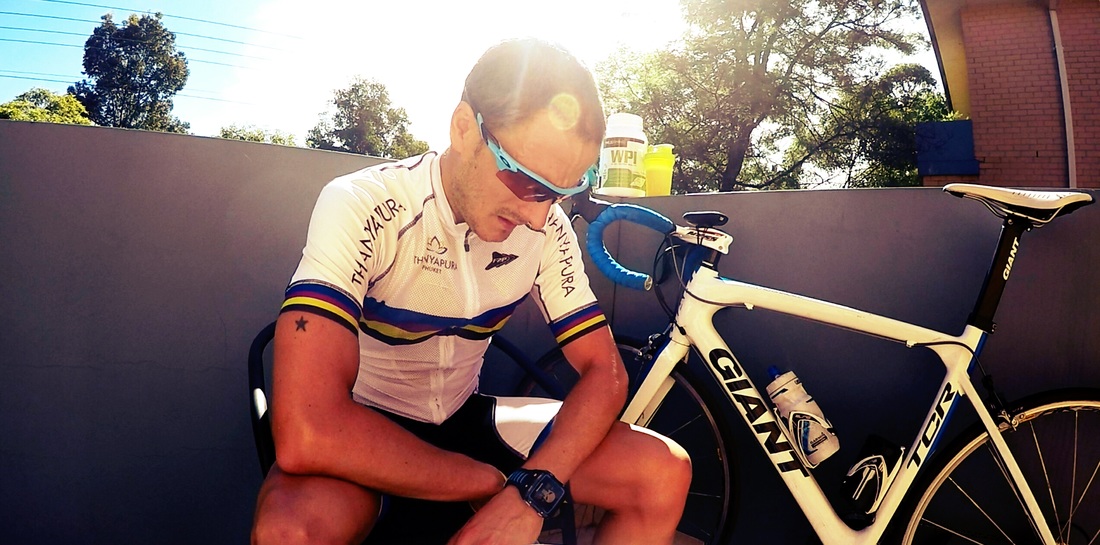
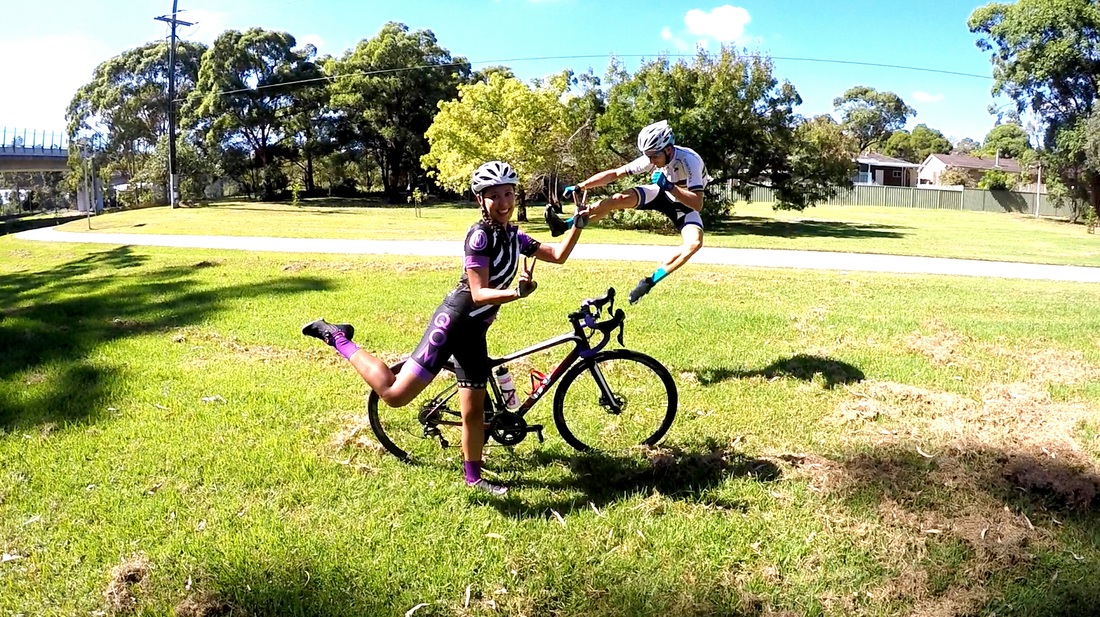
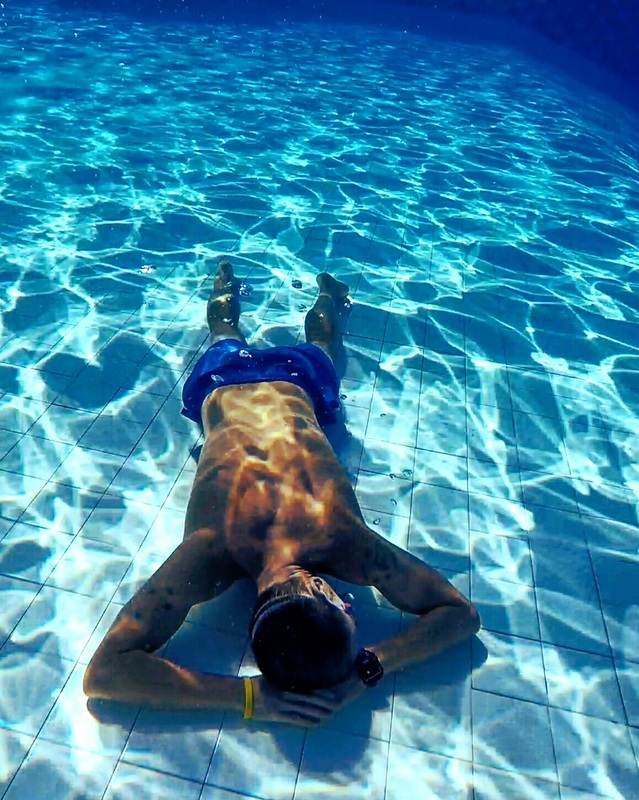
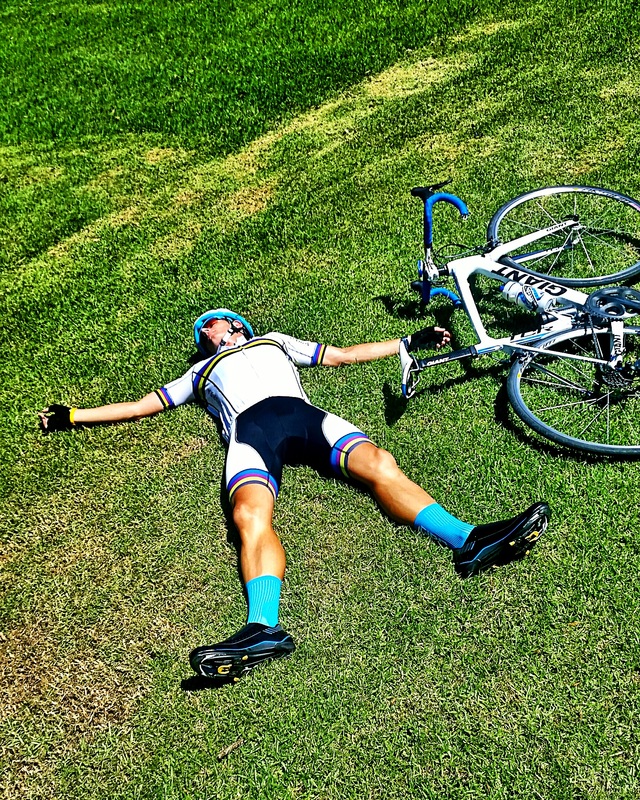
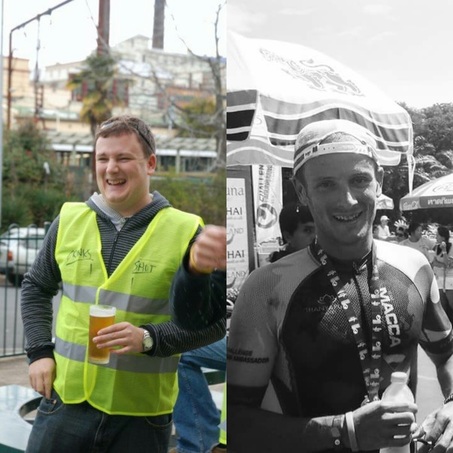
 RSS Feed
RSS Feed

